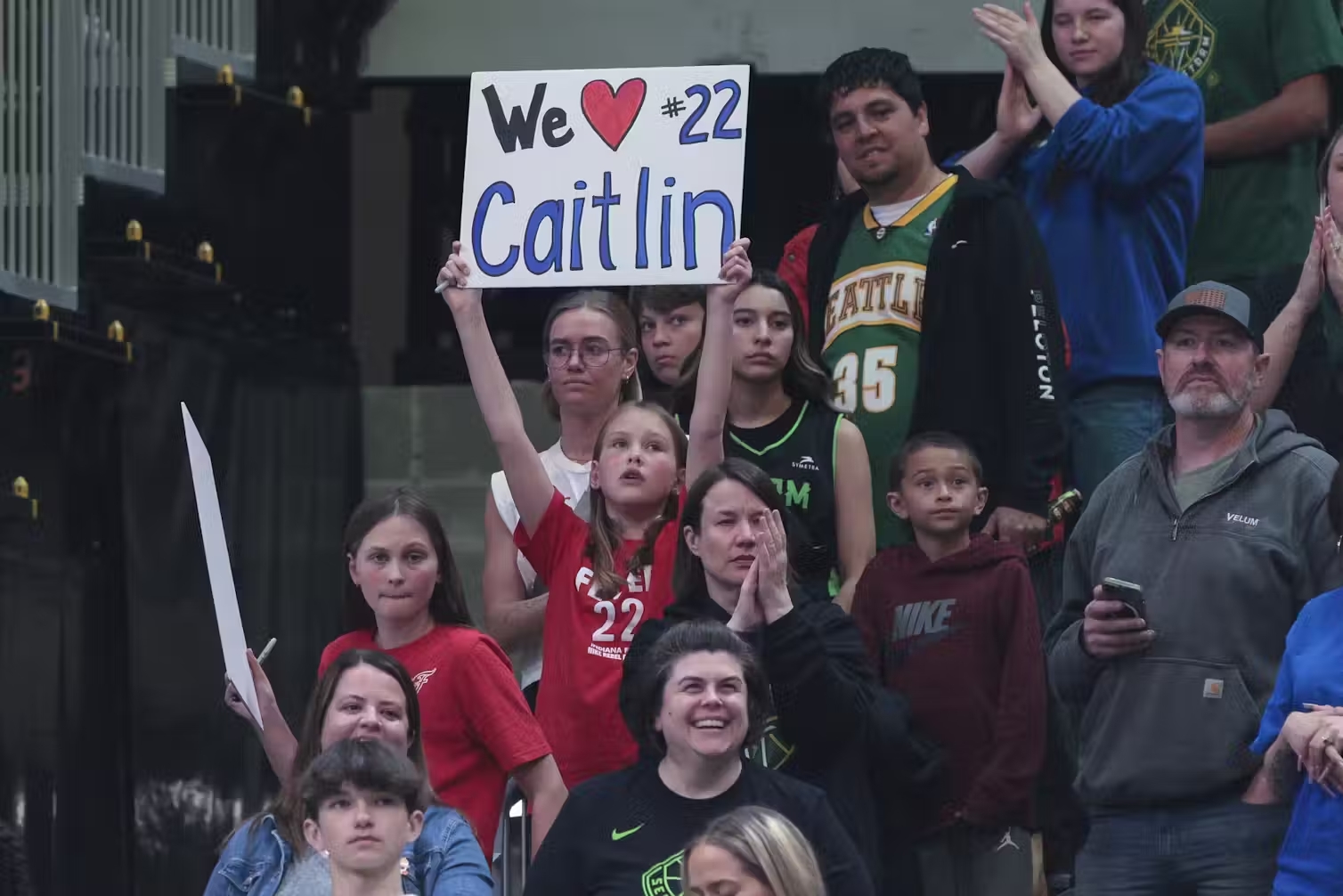In Canada, and the Toronto region in particular, the visibility of high-profile women in sports is on the rise. Whether it’s on the court, ice, pitch or even on the bench, women are making their mark and inspiring future generations.
The successful first season of the Professional Women’s Hockey League (PWHL) and expansions announced in the Women’s National Basketball Association (WNBA) are testaments to this growing momentum.
The foundation for the excitement has been laid. According to a report commissioned by Canadian Women & Sport, 17 million Canadians indicate they are fans of women’s sport. And on Feb. 16, the PWHL’s first game at Scotiabank Arena set a league and women’s hockey attendance record with a crowd of 19,285.
The WNBA played a preseason game in Toronto in 2023 to a sold-out crowd, and has seen unprecedented growth in interest over the last five years. Viewership increased 21 per cent from the 2022 WNBA season across its national television partners — ABC, CBS, ESPN and ESPN2 — and engagement on socials and sports betting sites have set new records.
To say that women’s sport in North America is thriving is an understatement. The question now is: what does it take for these leagues, and others focused on women’s sporting excellence, to sustain and build upon their success?
Core values of women’s sport
Within the Canadian sport system, research shows that strategic understanding of, and managing by, values can lead to increased organizational performance.
To engrain this wave of success and popularity of women’s sport into the fabric of our sport ecosystem, sport managers must embrace what is at the core of this success: the values women’s professional sport organizations hold, and the values consumers see within sport products such as on-field or court performance, merchandise and brand.
A report on the business of women’s sports by the Sports Innovation Lab, a market research firm, found that consumers are looking for different connection points in comparison to consumers of men’s sport.

Women’s sport fans are looking for connection, excitement and to become a part of a movement. The WNBA, for example, reflects core values of connection, social justice and excitement by strategically engaging with their basketball community.
As the PWHL and its affiliate teams continue their journey, and a WNBA franchise makes its way to Toronto, we must look to our women’s sport ecosystem and the economic and social values created by them.
Anyone who works within or leads a sport organization needs to truly know who they are serving, and authentically and effectively collaborate with stakeholders to bring those values to life.
Community and collaboration
To achieve and maintain success in women’s sports, embracing the concept of communities of practice is essential. Communities of practice refer to groups that share and work toward common interests, goals and values.
Research shows that having space where sport leaders and organizations can share knowledge, discuss triumphs and roadblocks and explore new ideas fosters long-term sustainability and innovation. However, the full potential of these tools is rarely leveraged strategically in sport.
In today’s sport ecosystem, there is potential for creating like-minded communities that value and uplift the increasing presence of professional girls’ and women’s sports.
The work of organizations such as Canadian Women & Sport, Canadian Tire JumpStart and the WISE Fund demonstrate the power of working together in a space that enhances collective excellence.

These are networks of folks with similar values and vision for where women’s sport can and should be. There are for-profit entities like FanDuel, RBC Canada and Canadian Tire, who have also provided financial resources and support to power this movement forward. Within the community of practice, these organizations need to also authentically hire and train women for senior leadership positions.
The PWHL and WNBA franchise in Toronto must not lose sight of the communities driving the excitement and support for these women’s sport leagues and teams.
Although the PWHL, WNBA — and, in 2025, a Canadian women’s pro soccer league called the Northern Super League — represent different sports, the strategic use of knowledge across sports, women’s sport value and collective resources can result in sustained and untapped excellence. There is potential for collaboration that is unmatched in the history of sport.
The future looks bright
Women’s sport is here to stay, and its future looks bright. To embrace and maintain the success of leagues and franchises, sport managers must not forget what women’s sport means to its core stakeholders — the fans — who are looking for connection and belonging, and the foundation from which it has grown.
Those who work and lead in sport must understand the values that underpin women’s sport and manage those values authentically and strategically. This will ensure women’s sports in Toronto continue to resonate with fans and participants alike by embracing the example created with fans in the WNBA.
And finally, sport managers must embrace the value of collaboration and engage in communities of practice. The core of these values brings people, leagues and organizations together in the pursuit of excellence, rather than pushing them apart.
![]()


